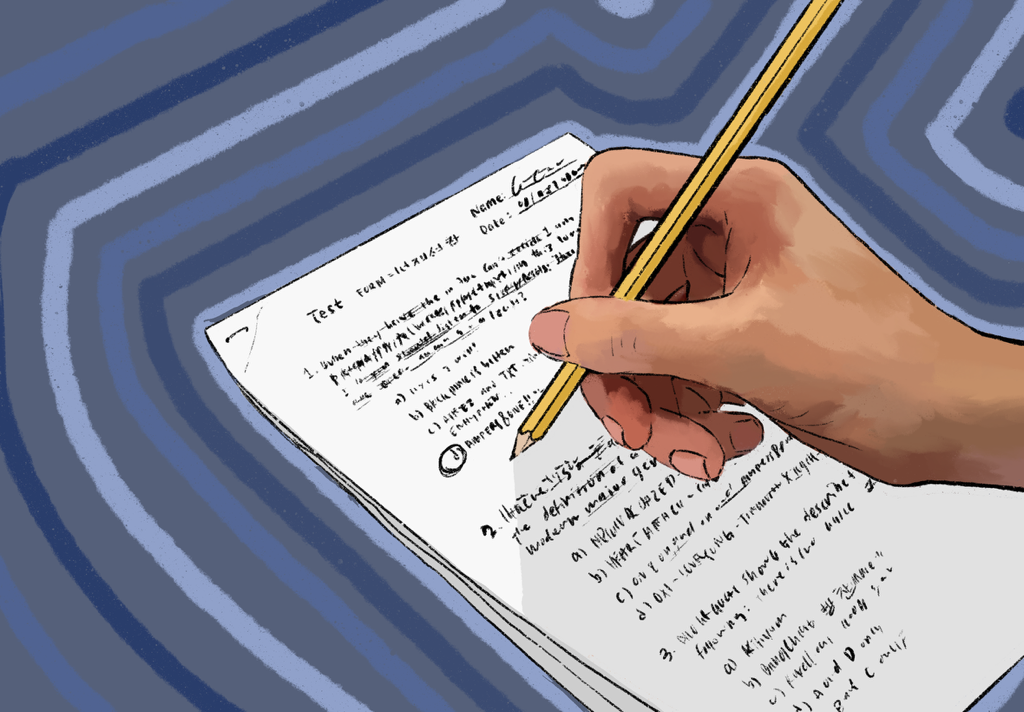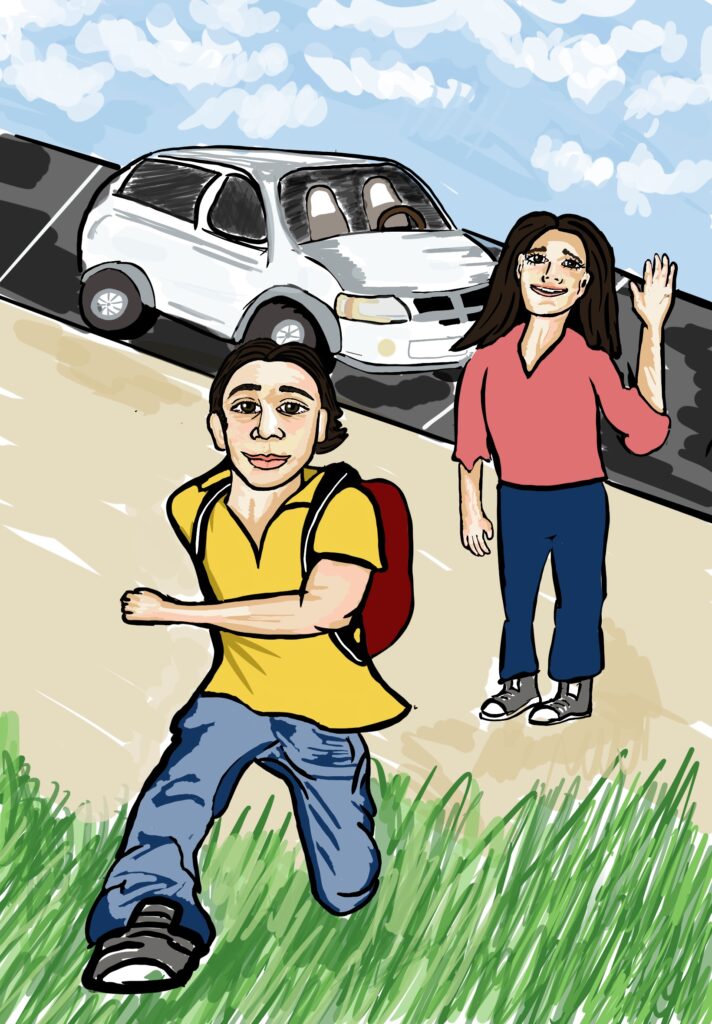As one of the few students at Choate with dyslexia, I feel lucky to be a part of this campus and to share my unique perspective with my classmates and teachers alike.
Dyslexia is often misunderstood. The term refers to any disorder that involves difficulty in learning to read or otherwise interpreting words. But it does not affect intelligence. In essence, it does not stop people from learning — though it makes academic tasks more difficult.
I was officially diagnosed with dyslexia in seventh grade after my parents asked that I be tested. Both my parents and teachers had expressed concerns about my academic progress. I was a diligent and hardworking student, but I wasn’t getting the results that I wanted.
To clarify, the disorder is different for each person who has it. For me, it means that I struggle with working memory, which impedes my problem-solving and reading comprehension skills. Moreover, I am a slow writer; I find it difficult to dissect texts and explain my conclusions compellingly.
I also struggle with foreign languages. Even though I was raised in a bilingual household (where my parents speak both English and Dutch), language acquisition still comes as a struggle to me — after all, rigorous memorization is inherent to learning a new language.
Yet, I am two weeks away from graduating. I have thrived here.
Choate is a challenging school for everyone. When I began four years ago, frankly, I wasn’t sure how I was ever going to manage the workload. How did I do it? By skipping some events on campus and trips with friends, I managed to get my work done in about double the time it took my peers.
Sure, I may work slower when it comes to homework, tests, and in-class activities, but I have strengths in other areas. I am creative in my problem-solving. For example, I have fallen in love with theater, where many issues inevitably arise. As both an actor and a techie, I have contributed a lot of my creative reasoning and problem solving abilities to make campus productions run smoothly and efficiently.
In my time here, I’ve never felt discriminated against in any way. My teachers have almost always accommodated me, making themselves available for extra help and otherwise understanding my disability. My peers view me as just another student, which is great because it means I’m keeping pace with them.
But the lack of awareness can also be frustrating. When my classmates see me staying after class to finish a test, they seem to roll their eyes, questioning why I receive extra time. They don’t know that I have dyslexia and am allowed “time and a half” for all assessments. In addition, it isn’t uncommon for some of my peers to gripe about getting an A- on a paper having worked on it for an hour and half, when I’ve worked on that same paper for more than four hours and am thrilled with a B+. If my classmates knew what it took for me to stay afloat here, maybe I wouldn’t feel so underappreciated.
Ultimately, I think dyslexia may have affected my grades at Choate — but not my success. I’ve come to understand that grades don’t determine how much I have learned or how accomplished I might be one day. I’ve learned not to measure myself by test scores or other standardized benchmarks. Even in light of the extra time I spend on assignments, I still take part in the wider Choate community through clubs, technical theater, chorus, and other outlets.
People with learning disabilities offer perspectives that benefit the Choate community in many ways. Whether it’s unique problem-solving skills in the theater, a different approach to a math problem, or a creative flare in class, students with learning differences should be celebrated and appreciated in our community. Sure, dyslexia might have made my Choate experience a little more difficult — but my desire to learn has made it all more than possible.




